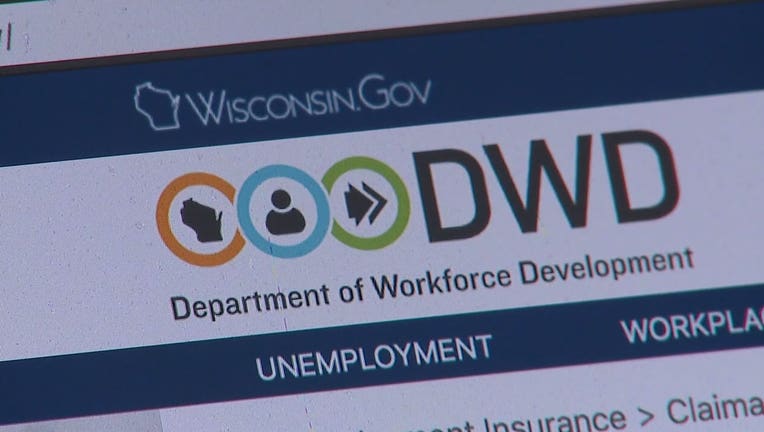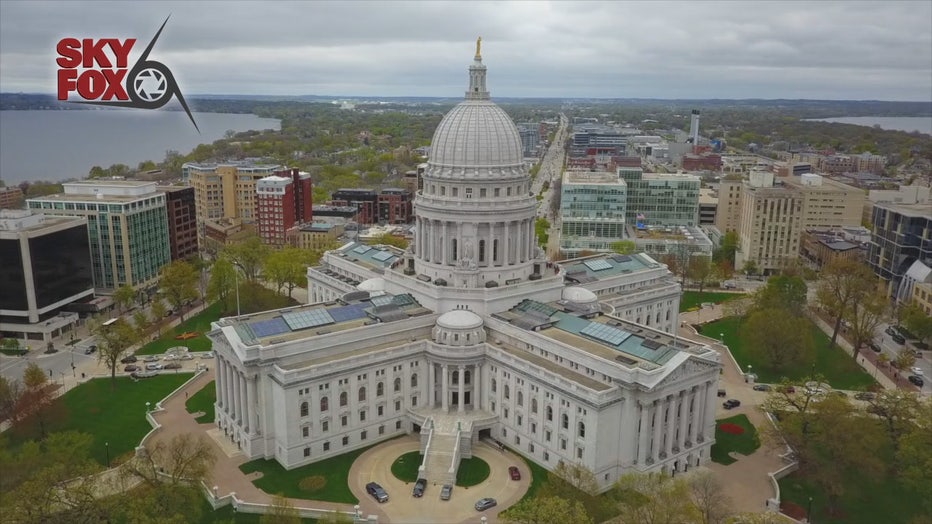Wisconsin unemployment: Bills would tighten benefits, Medicaid

MADISON, Wis. - Wisconsin Republicans introduced a package of legislation Tuesday that would tighten eligibility for unemployment benefits and Medicaid coverage, saying the bills are designed to help alleviate what they maintain is a crippling labor shortage in the state.
The bills would mandate audits of benefit recipients' work search efforts, shrink the duration of benefits as the unemployment rate drops and deny benefits to recipients who refuse job offers or don't show up for job interviews.
"We have such an immense number of jobs available," State Senate President Chris Kapenga (R-Delafield) said at a news conference to introduce the bills. "The people who are on benefits are not in the workforce. We want to reduce that so we don't have dependency on government. No person has ever become prosperous and independent on a welfare check."
SIGN UP TODAY: Get daily headlines, breaking news emails from FOX6 News
Wisconsin's unemployment rate was 3% in November, according to the latest data available from the state Department of Workforce Development. The agency estimated about 97% of the state's 3,107,800-person workforce was employed that month.
But Wisconsin Manufacturers and Commerce, the state's largest business group and a key Republican ally, has insisted employers are still suffering from a lack of workers. The bills come as GOP legislators prepare to head out on the campaign trail in a few months.

Wisconsin State Capitol, Madison
The proposals introduced Tuesday would:
- Reinstate a three-month limit on food stamp eligibility if recipients don’t comply with work requirements. Democratic Gov. Tony Evers' administration dropped the time limitation due to the COVID-19 pandemic.
- Require the state Department of Workforce Development to randomly audit at least 50% of all work search actions unemployment benefit recipients report to the agency. State law requires recipients to conduct at least four work search actions per week to remain eligible for benefits.
- Require DWD to expand hours at its call center to help people apply for unemployment benefits if the volume of calls increases by at least 300% in a week over the previous year or there’s a statewide emergency connected to an increase in unemployment claims. The Department of Administration would be allowed to temporarily transfer state workers to DWD to help decide unemployment benefit claimants’ appeals. Evers endured intense criticism over the first year and a half of the pandemic for allowing a massive backlog of unemployment claims to build up at DWD.
- Require state auditors to audit DWD’s attempts to reduce unemployment benefit fraud.
- Connect the amount of time someone can collect unemployment benefits to the unemployment rate. Right now, someone who is unemployed can collect benefits for up to 26 weeks. Under the bill, the number of weeks someone is eligible would shrink as the unemployment rate drops, from 26 weeks to a minimum of 14 weeks.
- Prohibit the automatic renewal of Medicaid benefits. State health officials would have to determine a person’s eligibility every six months. They would be able to access other state agencies’ databases and be required to use them to determine a person’s financial eligibility.
- Strip Medicaid benefits from able-bodied childless adults who turn down a job offer.
- Allow employers to report to DWD any eligibility issues that may surround a claimant and require the agency to deny benefits to claimants if credible reports surface that they declined a job interview or failing to show up for a job interview.
State Rep. Tyler August (R-Lake Geneva) said both the Assembly and Senate could vote on the bills by the end of February.
Assembly Democratic Minority Leader Greta Neubauer (D-Racine) countered in a statement that Wisconsin's unemployment rate is low and that the bills are designed to undermine unemployment benefits that families need to survive.
Evers almost certainly would veto the package if it reached his desk, especially in an election year. Evers spokeswoman, Britt Cudaback, didn't immediately respond when asked directly if the governor would kill the bills, but she did note Evers devoted $130 million in federal pandemic relief dollars in July to job training programs and local efforts to develop long-term solutions to the labor shortage.
FREE DOWNLOAD: Get breaking news alerts in the FOX6 News app for iOS or Android.
Featured
Republican Wisconsin Assembly leader Steineke won't seek reelection
Assembly Majority Leader Jim Steineke, a Republican representing Kaukauna, announced Tuesday that he won’t seek reelection this fall.
Featured
Third Ward shooting: Milwaukee detective leaves hospital
The Milwaukee police detective who was shot and injured in the Third Ward while off-duty was discharged from the hospital on Tuesday, Jan. 18.

Milwaukee Common Council OKs indoor mask mandate
The Milwaukee Common Council approved an ordinance to bring back a citywide indoor mask mandate. It would expire on March 1.



